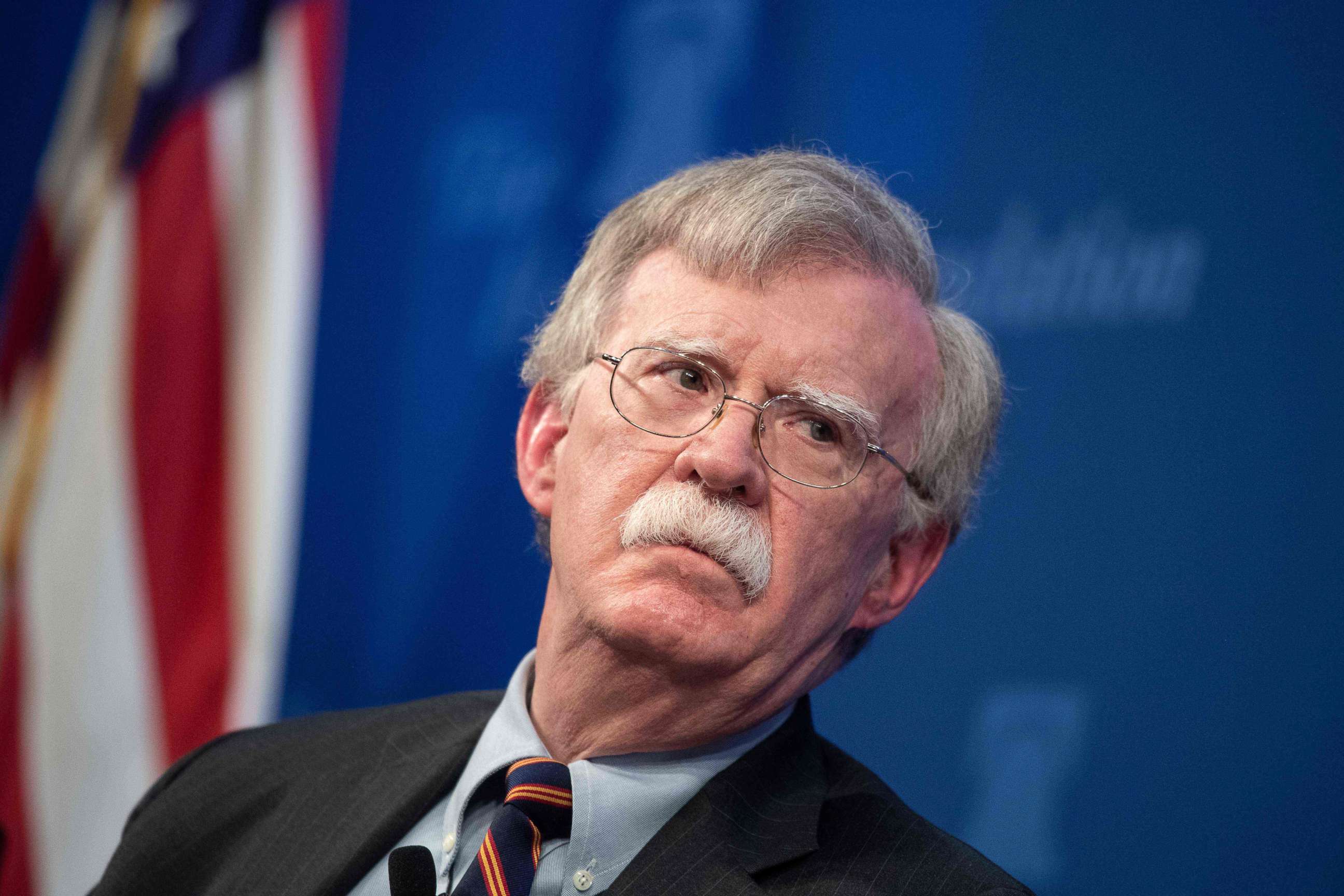White House unveils new strategy for Africa to counter Russian and Chinese influence
The administration is trying to counter Russian and Chinese influence in Africa.
National security adviser John Bolton unveiled the Trump administration's new strategy for Africa as it works to counter Russia and China, as they expand their financial, political and military investments across the continent.
"Africa is incredibly important to the United States," Bolton told the audience at the Heritage Foundation on Thursday. "If we didn't understand it before, the competition posed by China and Russia and others should highlight it for us, which is why I do think this is a potential turning point in American understanding of what's at stake for us -- not just for Africa -- but for the United States in African affairs."
Bolton outlined a three-pronged approach to the region, which includes advancing U.S. trade and commercial ties, countering extremist organizations and violent conflict and ensuring U.S. aid is used efficiently and effectively. The approach also includes the reevaluation of U.S. support for United Nations peacekeeping missions.
He declined to provide specifics regarding the funding for the new strategy, despite President Donald Trump's guidance for government-wide budget cuts.
The new strategy comes less than a month after the Pentagon announced it was reducing its footprint in Africa by 10 percent over the next several years, to prioritize its resources toward countering China and Russia globally.

The military draw down would largely focus on counterterrorism forces in the Sahel region where the Pentagon has provided assistance to nations fighting extremist organizations, but U.S. forces operating in Somalia, Djibouti, and Libya would "largely remain the same," according to a Pentagon statement.
Asked whether the troop reduction was at odds with the new Africa strategy, Bolton said the administration wants to see African nations less reliant on the U.S. military -- which currently has about 7,200 troops on the continent -- but that the change doesn't reflect a lack of prioritization for the region.
In November, the Pentagon said it would "preserve a majority of our U.S. security cooperation, partnerships and programs in Africa that strengthen our partner networks and enhance partner capability and ongoing programs."
Bolton acknowledged that Beijing has taken a longer-term, strategic approach to Africa with its “One Belt, One Road" initiative announced by President Xi Jinping in 2013, but he called their approach "predatory" with investment ventures "riddled with corruption."
Many African nations that were eager to accept Chinese loans now find themselves saddled with debt. Bolton pointed to Zambia as an example of a nation that owes China as much as $10 billion -- with Beijing now poised to take over its power and utility company in order to collect on the nation's financial obligations.
"Within the U.S. government it is fair to say whether it's Republican or Democratic administrations alike, it's often been difficult to get people to focus on [Africa]. There are always competing priorities," Bolton said.
"But now I think precisely because of the very well thought out, very comprehensive intervention of China in the continent of Africa and other places around the world too, with a program that is very systematically designed to tilt whole regions of the world ... in China's direction, that this is a very important point for the United States and the West as a whole to wake up."




